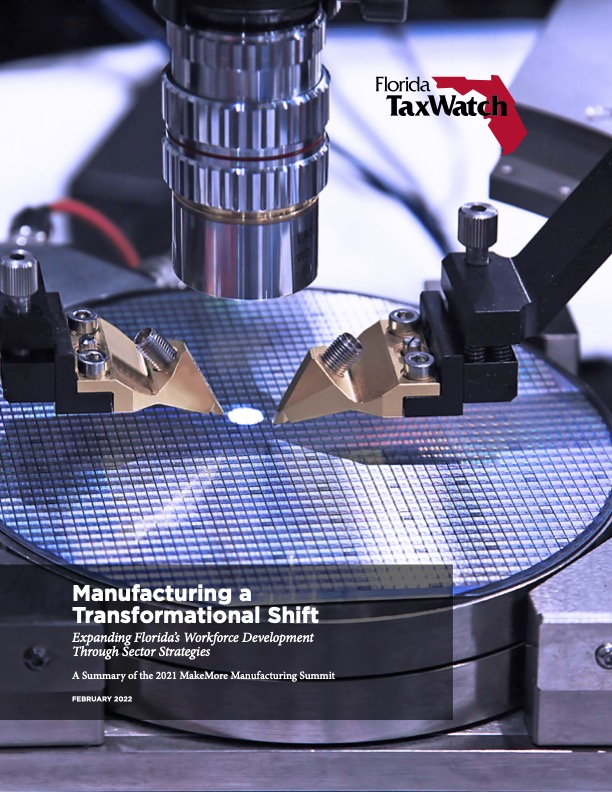Manufacturing a Transformational Shift—Expanding Florida’s Workforce Development Through Sector Strategies
A Summary of the 2021 MakeMore Manufacturing Summit

FloridaMakes is a statewide, industry-led, public-private partnership operated by an alliance of Florida’s regional manufacturers’ associations. Since its inception in 2016, FloridaMakes has had an economic impact of $2.6 billion with almost 17,000 jobs created and/or retained. The pandemic underscored the important role Florida’s Manufacturing sector plays in providing products that are crucial to public health and safety, national security, and the continuity of many other industries.
The MakeMore Manufacturing Summit was born in 2018 as a leadership-focused initiative originally developed by FloridaMakes in partnership with the Associated Industries of Florida (AIF), CareerSource Florida, Enterprise Florida, and the Florida Chamber of Commerce. The collective goal of the Summit is to: (1) elevate the state’s more than 22,000 Manufacturing companies and demonstrate their impact on the economy; and (2) recognize the importance of diversifying the economy and prioritizing the growth of an industry that provides high-wage, high- value jobs and that can ultimately improve Florida’s quality of life.
The 2021 Summit was conducted via three virtual events and one in-person event. It brought together distinguished subject matter experts to discuss manufacturing sector challenges and identify strategies to overcome them. The strategies presented during the Summit reflect “sector strategies,” which are collaborative, regional, industry-focused approaches to building skilled talent. Sector strategies have proven to be an effective way to align public and private resources to address the talent needs of Florida manufacturers.
In its review of the three virtual sessions, Florida TaxWatch identified four major challenges that must be addressed if we are to grow Florida’s Manufacturing sector:
- Finding people with the right skills necessary to keep up with the needs of Manufacturing and technology, particularly for emerging industries;
- Developing resilient and sustainable supply chains—interactive, dynamic, networks of people, processes, and technologies;
- Accelerating the adoption and implementation of Industry 4.0 technologies; and
- Attracting the next generation of manufacturers.